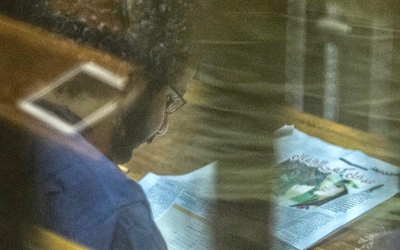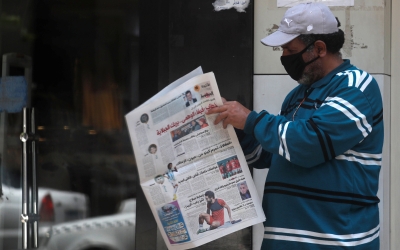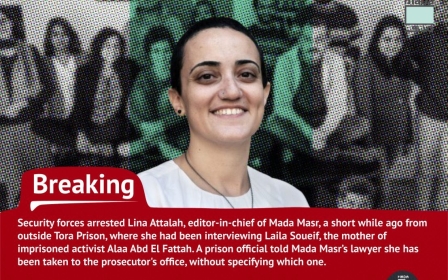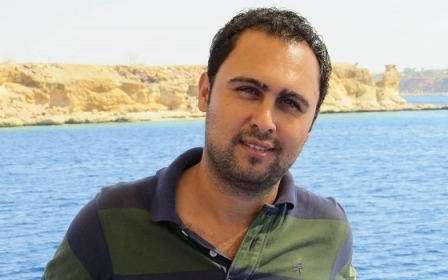Egypt arrests another journalist as attacks on independent media intensify

Egyptian security forces raided the offices of al-Manassa news agency and arrested its editor-in-chief, the agency said on Twitter, marking the latest attack on media freedom by the government of President Abdel Fattah el-Sisi.
Al-Manassa said eight "plainclothed officers and soldiers" broke into the agency on Wednesday, searched office computers and arrested editor-in-chief Nora Younis, a former Washington Post contributor and a human rights advocate.
The outlet said Younis, along with one of the agency's laptops, were taken in a van to a police station in Cairo's Maadi district.
"Policemen claimed to be checking software licenses but did not present an arrest or search warrant," Amnesty International said in a post to Twitter, adding that Younis was told she was being taken away because "her laptop needed to be inspected".
Amnesty urged authorities to "protect her from any torture or other ill-treatment" while in detention.
Citing her lawyer Hassan Al Azhary, al-Manassa reported that Younis has since been charged with running an unlicensed website, with a court hearing scheduled for Thursday.
Al-Manassa rejected the charges, saying that it had presented all the necessary documentation for licensing to Egypt's Higher Council for Media in October 2018, along with the designated $3,000 fee, but had never received a reply from the council.
Media outlets are required to have government permission to operate in Egypt, but withholding accreditation has in the past been used as a pretext to silence critical reporting.
Younis has long been critical of the Egyptian government, having won the Human Rights First 30th anniversary award for her work using new media tools to expose human rights violations and police brutality in 2008.
She formerly worked as a managing editor at Al-Masry Al-Youm, Egypt’s most popular daily, before founding al-Manassa in 2015.
The al-Manassa website, along with at least 500 others has been blocked in Egypt since 2017, according to local media.
Covid-19 media crackdown
Earlier this month, Egypt's Council for Media Regulation announced a ban on media addressing various "sensitive" issues.
Going forward, the council said, media outlets and social media users would be restricted from covering or discussing the coronavirus, Ethiopia's Renaissance Dam and the conflicts in Libya and the Sinai Peninsula.
Egypt was already the third-worst jailer of journalists in the world, but since the outbreak of the pandemic, the government has accelerated its crackdown on journalists by arresting or deporting those who confront state figures.
In May, Lina Attalah, editor-in-chief of prominent Egyptian independent news site Mada Masr, was also arrested by security forces as part of the government's crack down on the media.
Attalah was detained after interviewing the mother of an imprisoned activist and held for several hours before being released on release on bail following international outrage.
That same week, journalist Haisam Hasan Mahgoub was also arrested and held over allegations of spreading false news and funding a terrorist group.
"While some governments worldwide pardon prisoners during the time of Covid-19, Egypt is determined to keep its prisons full of journalists instead of letting them cover the pandemic and other news events freely," CPJ Middle East and North Africa program coordinator Sherif Mansour, said at the time.
Middle East Eye delivers independent and unrivalled coverage and analysis of the Middle East, North Africa and beyond. To learn more about republishing this content and the associated fees, please fill out this form. More about MEE can be found here.






